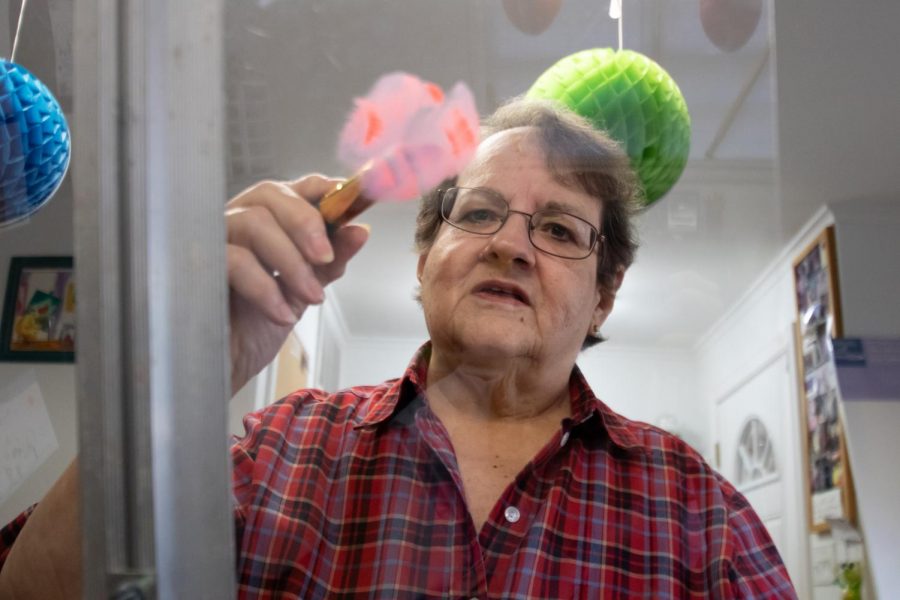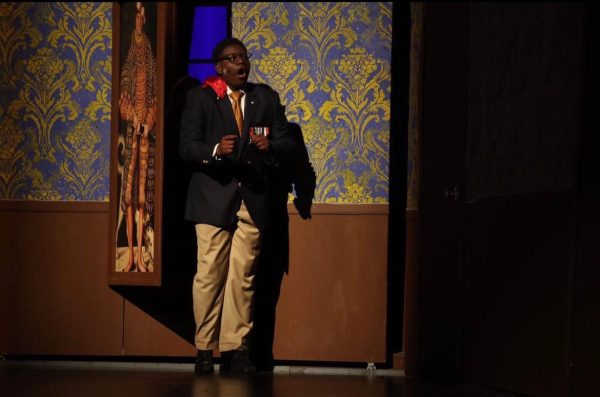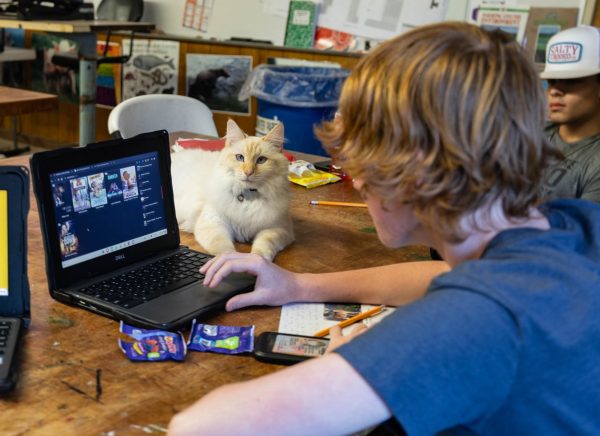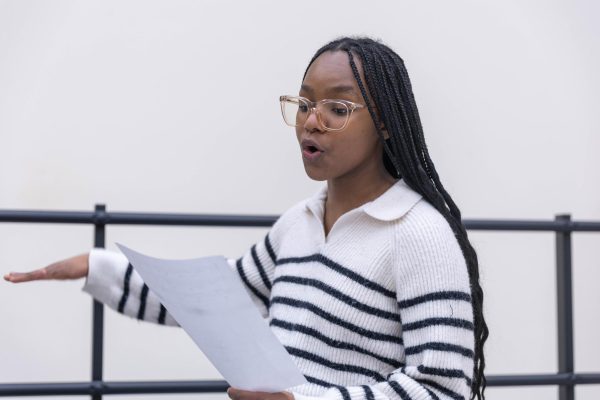The art of creative careers
Private art teacher explains experiences With Her Line of Work
Judy McKinney paints on plexiglass to demonstrate the strokes oil paints make with brushes. McKinney offers private art lessons from her studio on Kennedy lane.
October 8, 2019
Located between Texas High and the murky madness of real life lies a house that thrives on paint splatters and smiles. Colorful collections of assorted paint tubes line the cabinets of the home’s most spacious room. Previously white desks, now marked with a myriad of markers and crayons, stand proudly along the room’s equally off white walls.
This spacious room has a reason behind its elaborate decoration. It is an art studio. Judy McKinney, the lone teacher at Studio 2211 on Kennedy Lane, passes on her love of art to all ages and experience ranges for a living. With each day spent toward retirement, she gathers more insight on working in a creative field, from the uplifting to the unpleasant.
McKinney’s atypical work setting, the comfort of her own home, is a dream to many. However, it can be a slippery slope to unproductivity. She explains that a solid work ethic is key.
“You have to be self motivated.” McKinney said, “You have to be able to set deadlines and meet the.”
However, her work is not strictly self-employed. Some of her youngest clients receive instruction at St. James Day School, and the contrast between the two environments is very apparent.
“The consequences are a lot more personal [when you are self employed]. If you work for the school system and you screw up you could get fired,” McKinney said. “If you work for yourself and you mess up you go out of business.”
Luckily for McKinney, her career is void of these major mess ups. Students of all generations look back at her lessons fondly and still seek her guidance.
“I had a student from about 15 years ago show up on my doorstep with a painting she was doing on commission. She was having trouble with it and came into some of my children’s summer art classes and finished that painting with my advice,” McKinney said. “I was able to steer her through the things that were giving her issues. She was really happy with how it turned out.”
Even before she decided on her career path, McKinney was no stranger to hard work. Art never came naturally to her as a child. However upon relentless effort, she developed a knack for this passion during adulthood. As a result her yearn for creativity has never dwindled.
“Since I wanted [artistic talent] and couldn’t have it, and then found it by accident when I was already grown, I’ve never gotten over the wonder of it,” McKinney said.
When it comes to her profession’s cons, McKinney’s response is the finances. Making ends meet is notoriously difficult in creative fields. However she claims a more futuristic subset of the art industry is more lucrative than the classic canvas and paint style.
“It’s easier to get a good career going with pay if you use a combination of your artistic skills and computer skills,” McKinney said. “So just teaching art like I do, it’s difficult to make a decent living at it. You have to constantly recruit to keep enough students.”
Almost as empty as the pockets of starving artists is the self-confidence of older students, who seem less satisfied with their pieces than younger generations.
“Grown ups are a lot harder to teach because they can finish something and say, ‘I don’t know how that happened. I didn’t do this. Judy, you did this,’” McKinney said. “[Adults] have a hard time believing in themselves if they already have it in their heads that they can’t do something.”
As McKinney, ridden with arthritis, edges near retirement, she still thrives in a profession many may find overwhelming. Those unfit for her lifestyle would say it’s messy, chaotic and covered in paint. But she wouldn’t give it up for the world.
“I’m doing something for a living that if I were wealthy, I would be willing to pay someone if they would let me do it,” McKinney said. “It doesn’t get much better than that.”





















